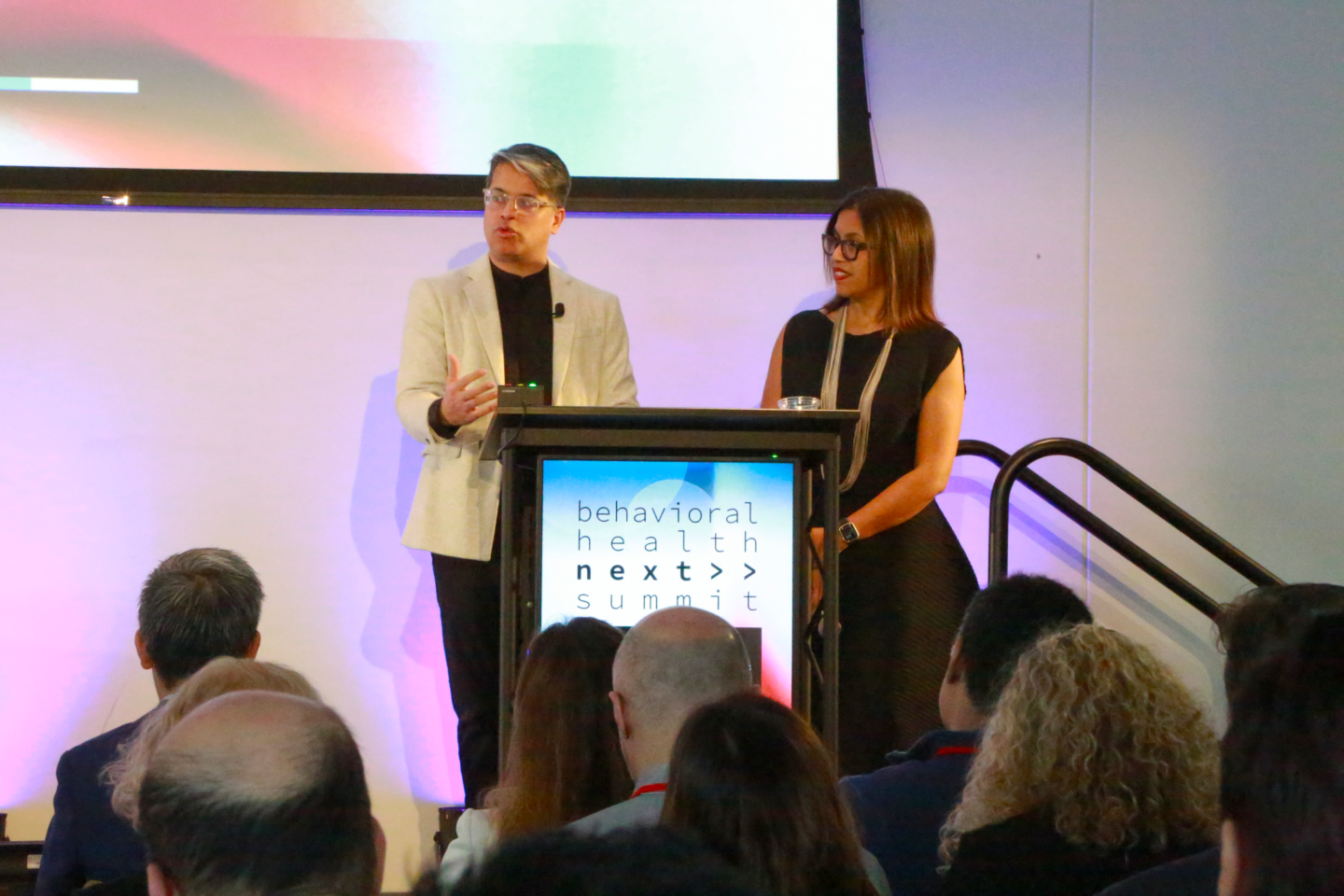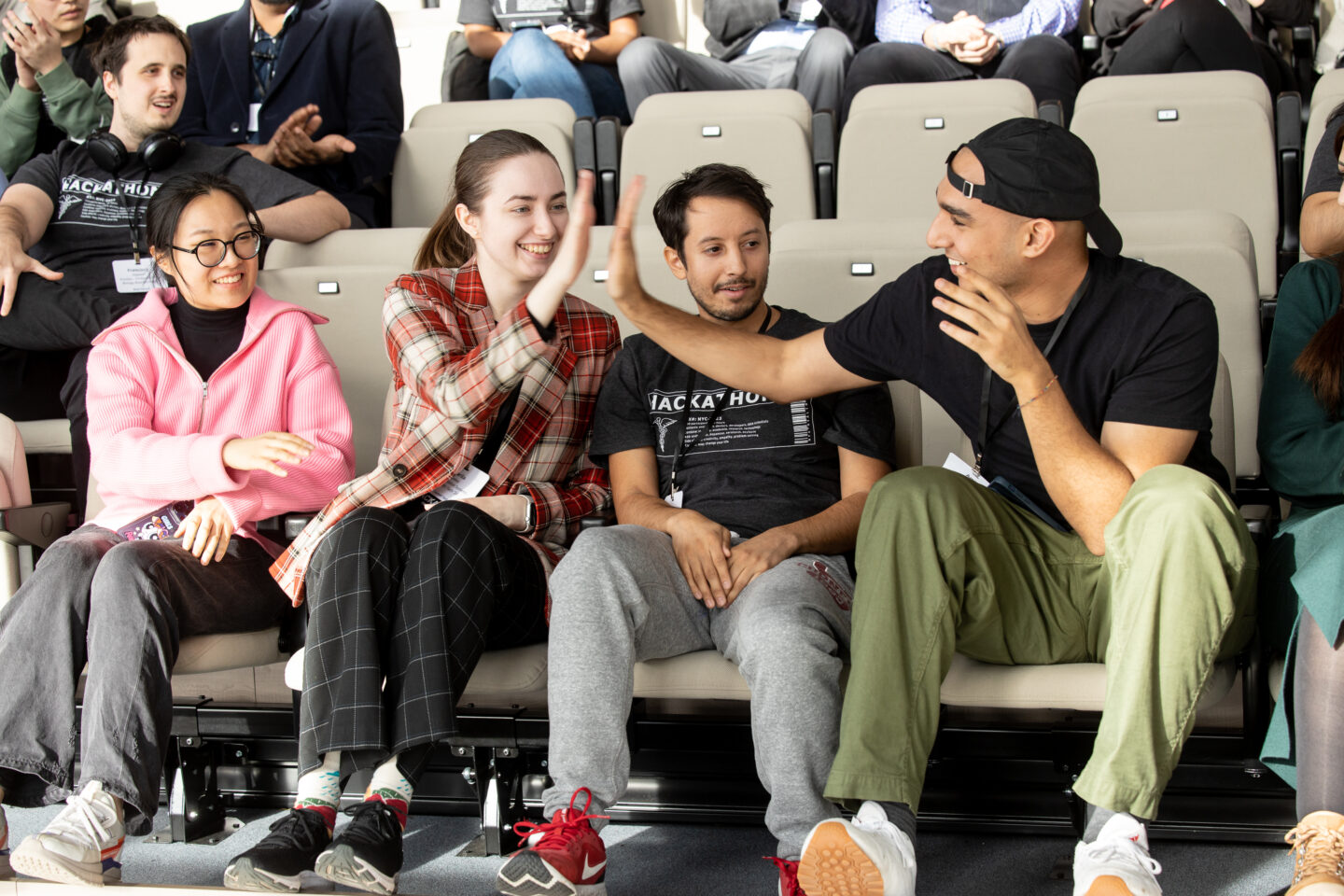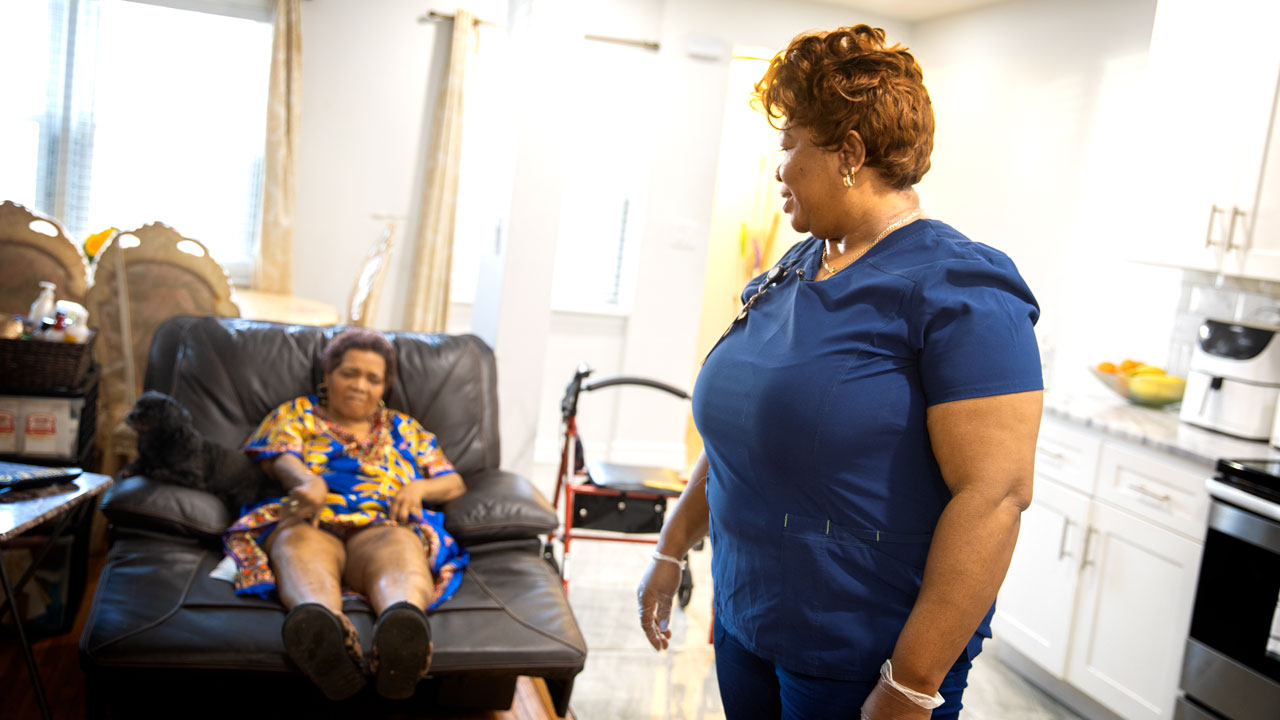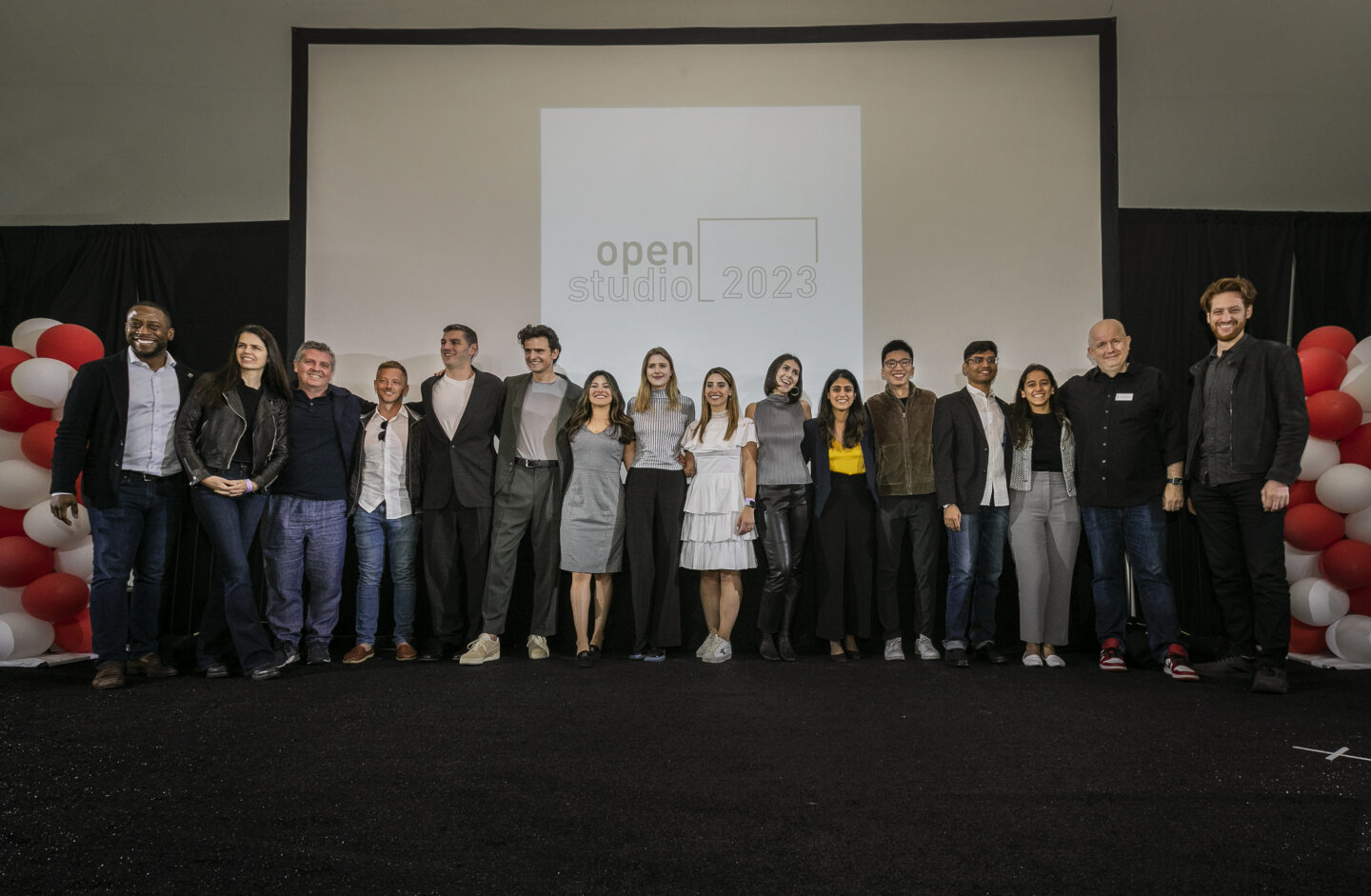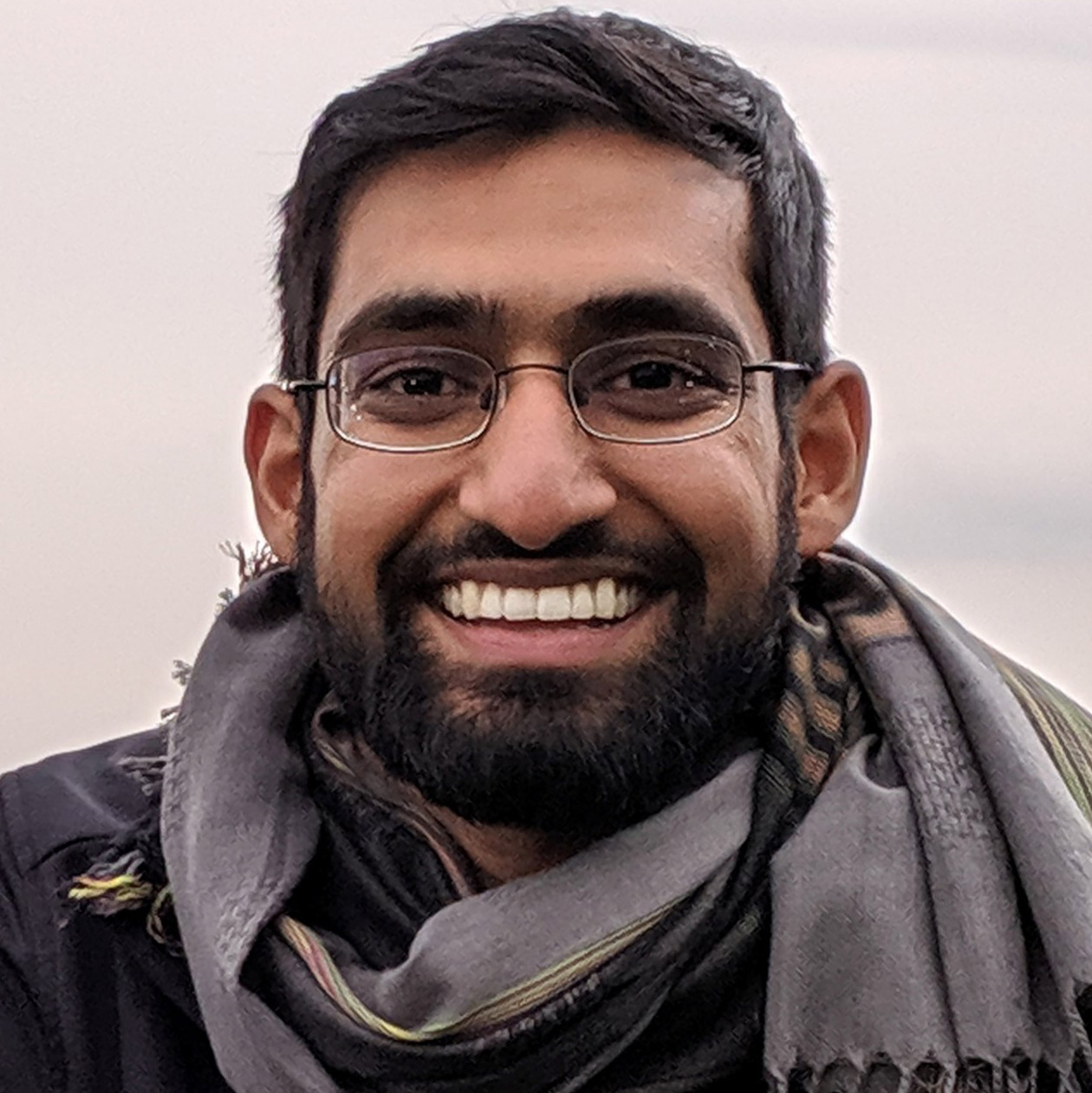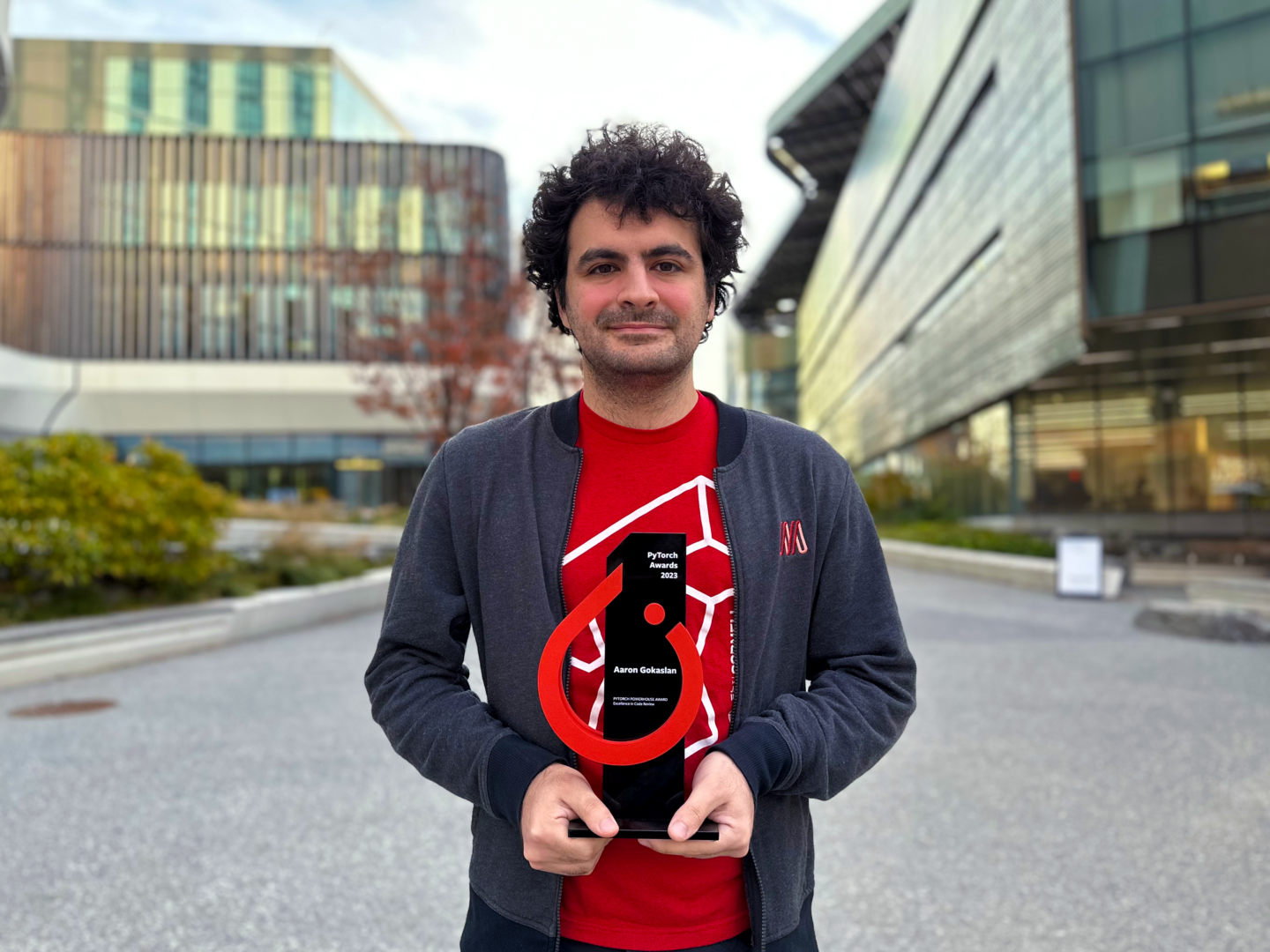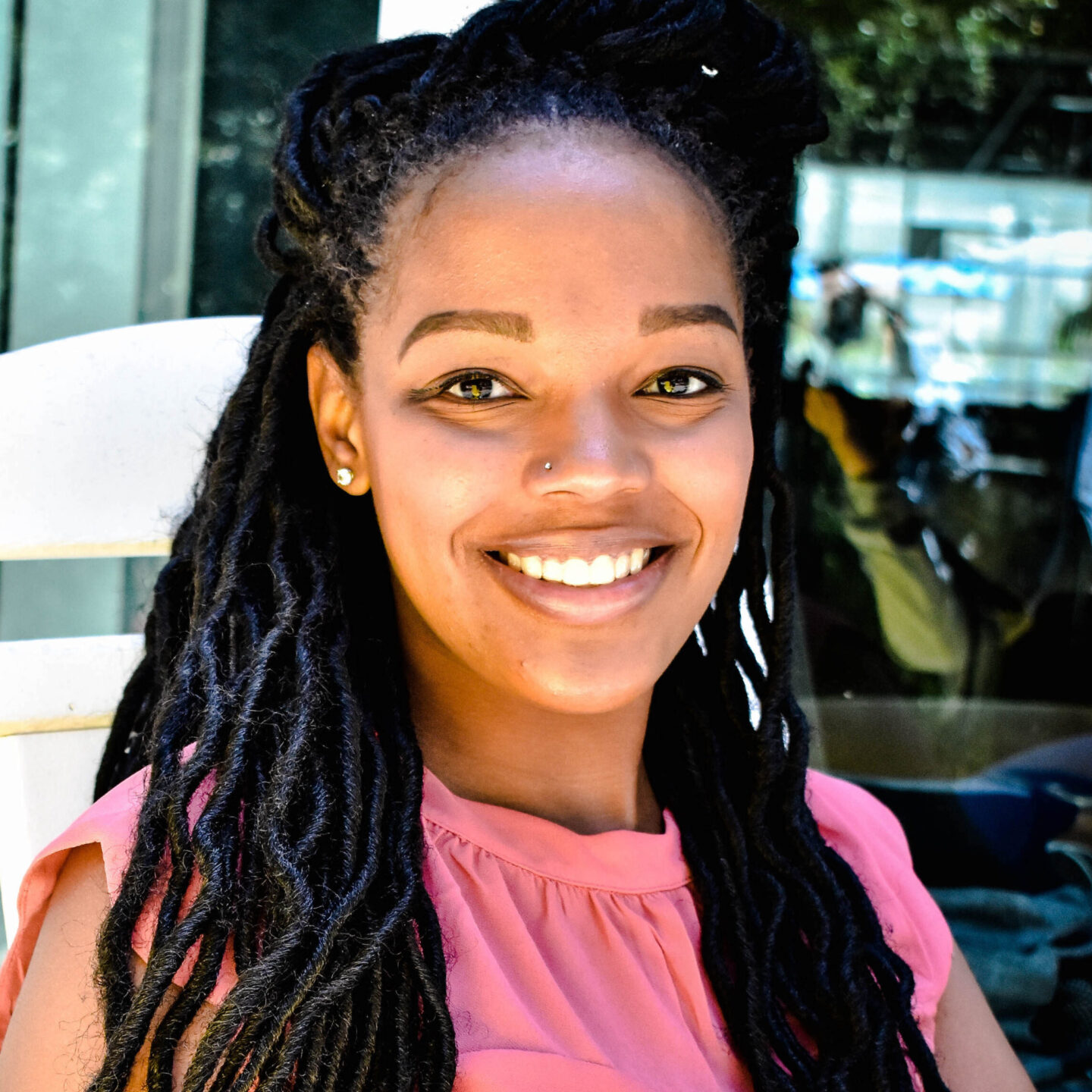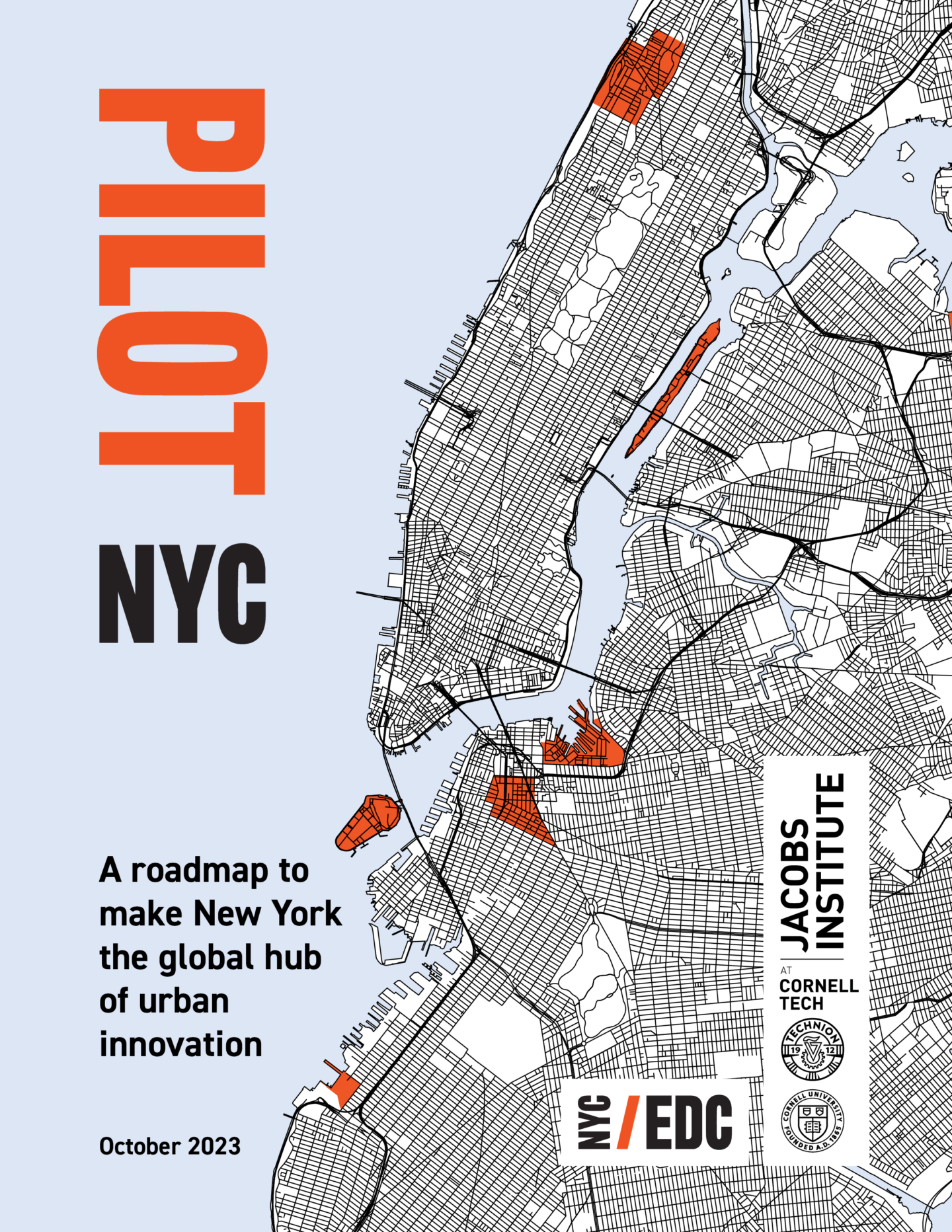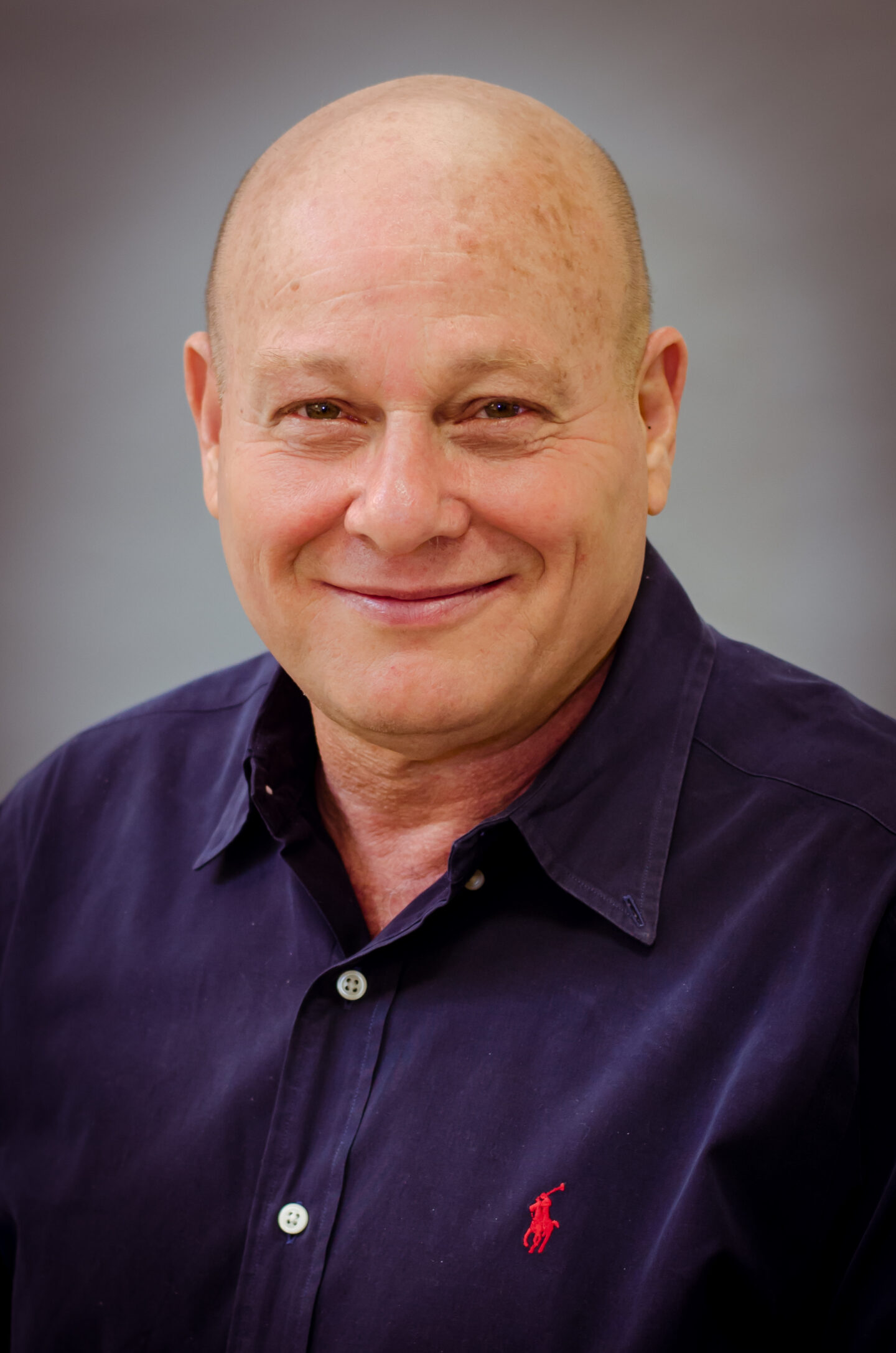Eric Conti, Johnson Cornell Tech MBA ’16, shares how Cornell Tech gave him the skills to effectively use an entrepreneurial mindset within a large organization.
Media Highlights
Tech Policy Press
Content Moderation, Encryption, and the LawRELATED STORIES
Media Highlights
Tech Policy Press
Content Moderation, Encryption, and the LawRELATED STORIES

Media Highlights
Tech Policy Press
Content Moderation, Encryption, and the LawRELATED STORIES
Alumni Profile: Jillian Sue, Jacobs Technion-Cornell Dual MS Degrees – Health Tech ’18
Categories

Jillian Sue, Jacobs Technion-Cornell Dual MS Degrees – Health Tech Concentration ’18, speaks about how her degree has helped her to become the Product Manager of Paige.AI.
Media Highlights
Tech Policy Press
Content Moderation, Encryption, and the LawRELATED STORIES
Cornell Tech Opens Computer Security Clinic for Victims of Tech-Enabled Intimate Partner Violence
Categories

Human Rights Attorney Joins Clinic as First Director to Expand Outreach and Activism
Cornell Tech announced today its Computer Security Clinic for Victims of Intimate Partner Violence, a crucial step in sustaining and expanding the clinic’s groundbreaking work with vulnerable people. An interdisciplinary research team at Cornell Tech, with collaborators from Cornell University in Ithaca and New York University, created the clinic to help survivors of intimate partner violence (IPV) determine whether their abusers are using technology as a tool to harm them.
The clinic’s founding director will be human rights attorney and surveillance and digital rights expert Sarah St.Vincent, who will turn the clinic’s research into action. As Director, St.Vincent will oversee the growth of the clinic, tackle the fundamental causes of tech-enabled abuse, and promote broader reforms city-wide and beyond.
“The Computer Security Clinic for Victims of Intimate Partner Violence will allow our talented research team to help more survivors in collaboration with the New York City Mayor’s Office to End Domestic and Gender Based Violence and other partners,” said Deborah Estrin, Associate Dean for Impact at Cornell Tech. “By studying and creating software tools for victims, the IPV clinic can help reduce widespread abuse enabled by smartphones. This kind of research, centered around public interest tech and impact, is core to Cornell Tech’s mission in New York City.”
“We’re proud to build on our award-winning research on how to combat technology-enabled abuse, which can be so daunting for survivors,” said Nicola Dell, Assistant Professor at the Jacobs Technion-Cornell Institute at Cornell Tech, and co-lead of the research team. “Too often, technology places power in the hands of the perpetrator rather than the victim — and St. Vincent’s new role will help elevate our research.”
The misuse of smartphone technology, social media websites, and other aspects of digital life by abusive spouses and partners has become an increasingly urgent problem in the United States. Since 2016, a group of researchers at Cornell Tech have been documenting how abusers can misuse technology to track and harass others. In tandem, the group has been running the Computer Security Clinic, which works directly with IPV survivors in partnership with the New York City Mayor’s Office to End Domestic and Gender Based Violence.
The research team has previously investigated and catalogued smartphone apps — often described as “spyware” or “stalkerware” — that can enable stalking and abusive monitoring. It has also created a special software tool to detect such apps and helped prompt tech companies to update antivirus programs to flag them. Most recently, it has published a peer-reviewed study of an approach to providing hands-on tech help to survivors.
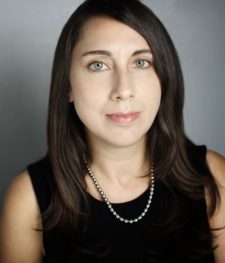
“Privacy is power, and I’m delighted to have joined a team of technology experts that’s dedicated to empowering abuse survivors,” said Sarah St.Vincent, Director of the Computer Security Clinic. “Everyone has the right to safety both online and offline, and we will be strengthening that right every day.”
St.Vincent joins Cornell Tech from Human Rights Watch, the global human rights organization, where she conducted research and advocacy on US government surveillance and other privacy issues. St.Vincent has also addressed surveillance and privacy at the Center for Democracy & Technology, and has worked with survivors of IPV and human trafficking at a rights organization in the United Kingdom. She holds a law degree from the University of Michigan and a master’s degree from Harvard University. St.Vincent began her work as Director of the IPV Computer Security Clinic at Cornell Tech on October 1, 2019.
For more information, please visit https://www.ipvtechresearch.org/.
About Cornell Tech
Cornell Tech’s degree programs and research initiatives provide responsive approaches to the rapid emergence of technologies and their societal impact in the digital age. The Jacobs Institute, established jointly by Cornell University and the Technion-Israel Institute of Technology, embodies the Cornell Tech mission by fostering radical experimentation at the intersection of research, education, and entrepreneurship.
The new, 700,000-square-foot Cornell Tech campus is located on Roosevelt Island in Manhattan. This highly sustainable and open campus, designed by a team of award-winning architects, will expand to house two million square feet of state-of-the-art buildings, over two acres of open space, and more than 2,000 graduate students and hundreds of faculty and staff.
Media Highlights
Tech Policy Press
Content Moderation, Encryption, and the LawRELATED STORIES
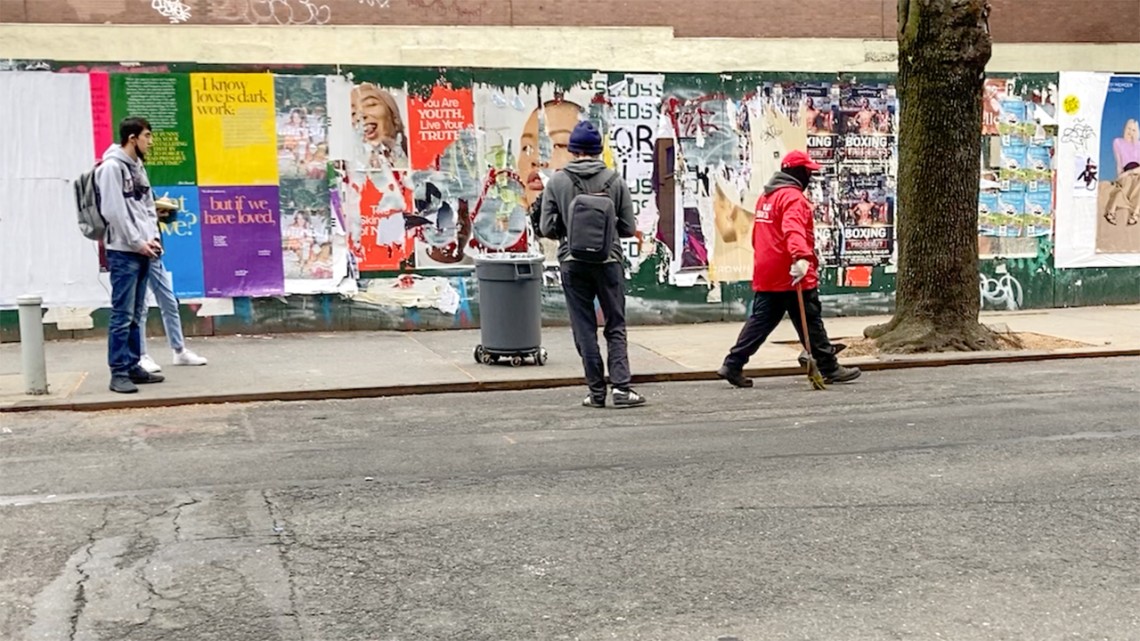
(Almost) Everyone Likes a Helpful Trash Robot

Deborah Estrin, Robert V. Tishman ’37 professor of Computer Science and associate dean for impact, was recently elected to the National Academy of Medicine (NAM) for her research leveraging mobile devices and patient-generated data. By applying computer architecture and mobile sensing concepts, Estrin’s work is accelerating data-driven driven personal health management. Estrin is also on the forefront of creating a rigorous multi-disciplinary mHealth research community.
Rainu Kaushal, M.D. at Weill Cornell Medicine, was also elected to the Academy. Estrin is also a Professor in Dr Kaushal’s Department of Healthcare Policy and Research at Weill Cornell Medicine.
According to a release by NAM, “election to the Academy is considered one of the highest honors in the fields of health and medicine and recognizes individuals who have demonstrated outstanding professional achievement and commitment to service.”
Read the full announcement here.
Media Highlights
Tech Policy Press
Content Moderation, Encryption, and the LawRELATED STORIES

(Almost) Everyone Likes a Helpful Trash Robot
Cornell Partners with MTA to Jump-start Transit Innovation
Categories

New technology can get the subways back on track.
Collaborations between academia, industry and the public sector are needed to modernize New York state mass transit, according to speakers and panelists at the “New Day at the MTA” conference, Sept. 20 at the Jacob K. Javits Center in Manhattan.
The conference, co-sponsored by the Metropolitan Transportation Authority (MTA), the Jacobs Technion-Cornell Institute at Cornell Tech and the Empire State Development Corporation, explored the myriad solutions officials say are urgently needed by an aging transit system that moves 8.6 million people a day – roughly half the population of New York state.
“I think there is a growing societal disconnect between emerging technology and government projects, and I believe it is hurting this state and this country,” said New York Gov. Andrew Cuomo, who launched the conference with a call to return to the ingenuity that built the subway in the first place. “The stark reality is that we cannot succeed long term without new technology and new companies entering the field.”
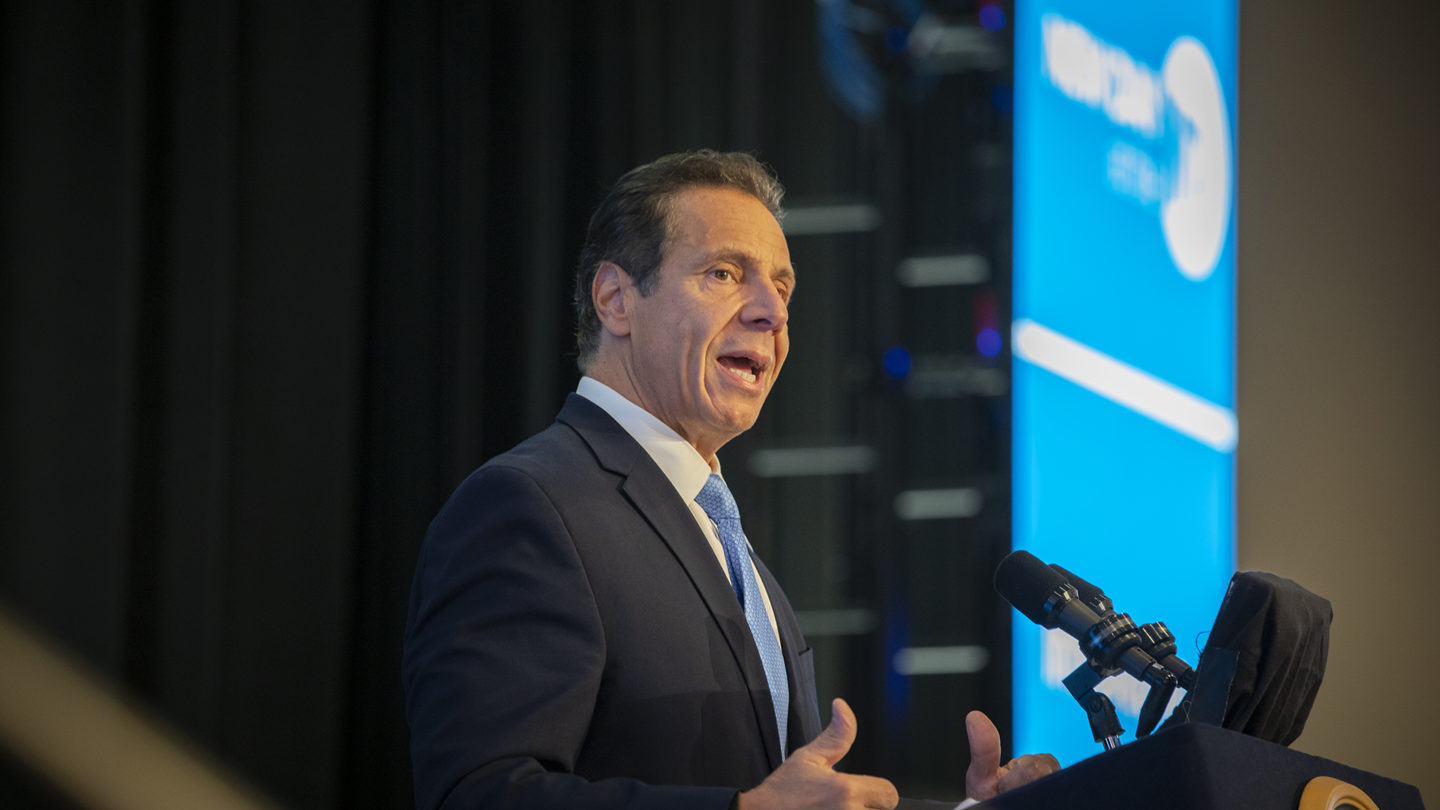
The conference continued Cornell’s collaboration with the MTA earlier this year, which averted a shutdown of the L train so dreaded that New Yorkers dubbed it the “L-pocalypse.” Considering fresh perspectives that incorporate emerging technology was vital both for the L train project and for the sustainability of the entire transit system, speakers said.
To help develop these kinds of solutions, the Jacobs Institute is launching a master’s degree concentration in urban tech in fall 2020. The degree concentration was announced at the event by Greg Morrisett, the Jack and Rilla Neafsey Dean and Vice Provost of Cornell Tech.
“We want to design technologies to make cities more connected, livable and sustainable,” Morrisett said. “We’re launching this program because we at Cornell Tech are committed to furthering the public good, by helping break down barriers and facilitate partnerships between tech, academia and the public sector.”
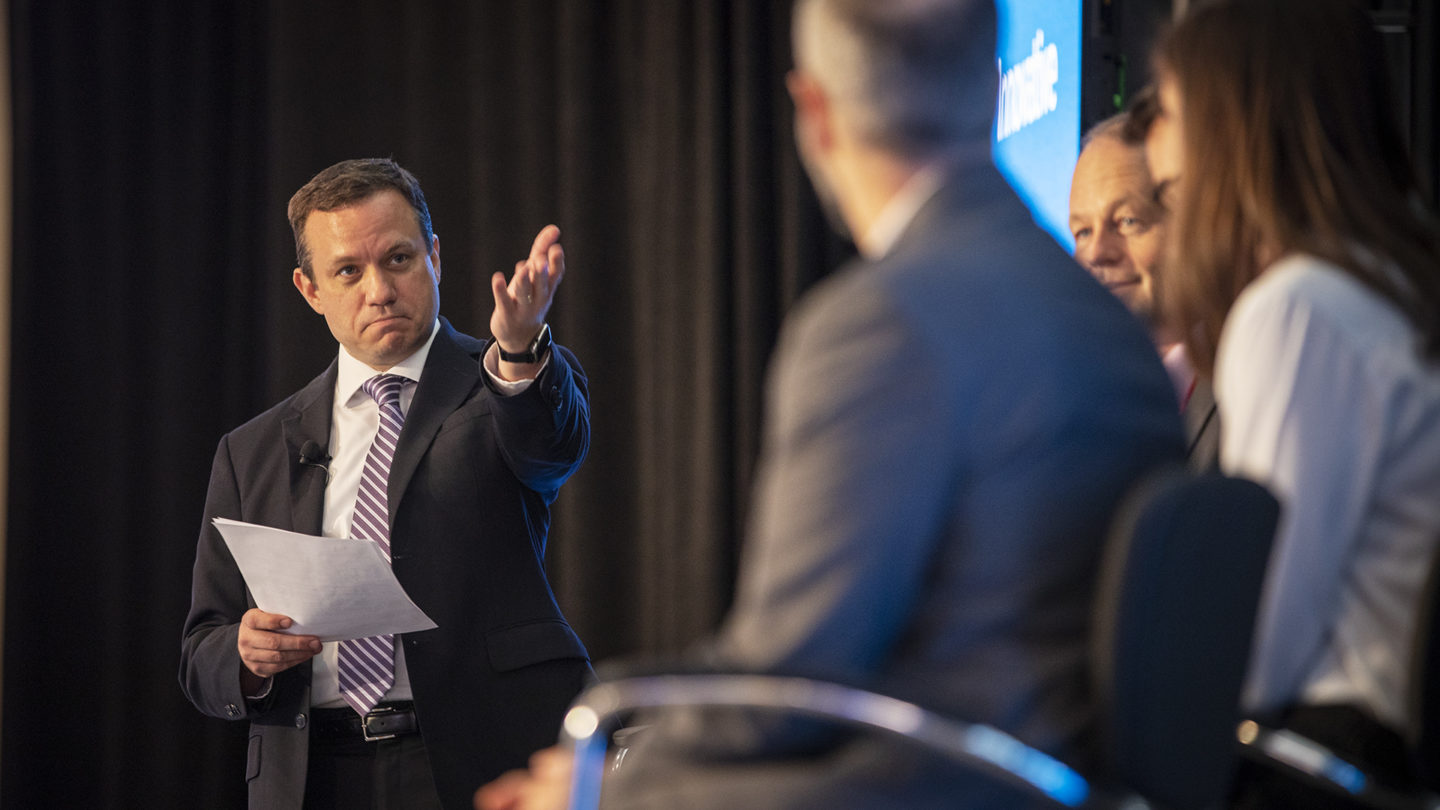
Students in the urban tech concentration will earn dual master’s degrees – an M.S. in information systems from Cornell University and an M.S. in applied information science from the Technion-Israel Institute of Technology. They’ll apply machine learning, data science, human-computer interaction and product design to develop tools for government, real estate and other emerging urban tech sectors.
“Cornell Tech’s continued commitment to education and to preparing the next generation of innovators and transit leaders is inspiring and deeply needed,” said Patrick Foye, chairman and CEO of the MTA.
The concentration is the result of a collaboration between the College of Architecture, Art and Planning, Cornell Engineering and the Jacobs Technion-Cornell Insitute.
“With complex systems operating within larger systems, cities naturally demand interdisciplinary study,” said Ron Brachman, director of the Jacobs Institute and professor of computer science, who served as Cornell’s program chair for the MTA forum.
Though advances have been made in recent years, many aspects of the MTA’s operations remain archaic: Some subway cars date to the 1950s, and they rely on 1980s technology for signaling, which prevents collisions and derailments and helps trains arrive on time.
At the event, which was attended by more than 500 people, Cuomo and other transit leaders appealed to representatives from tech companies to partner with the MTA on new products and innovations. Morrisett, Brachman and Lance Collins, the Joseph Silbert Dean of Engineering, were among the moderators of five panels that sought to explore the challenges and opportunities of these partnerships.
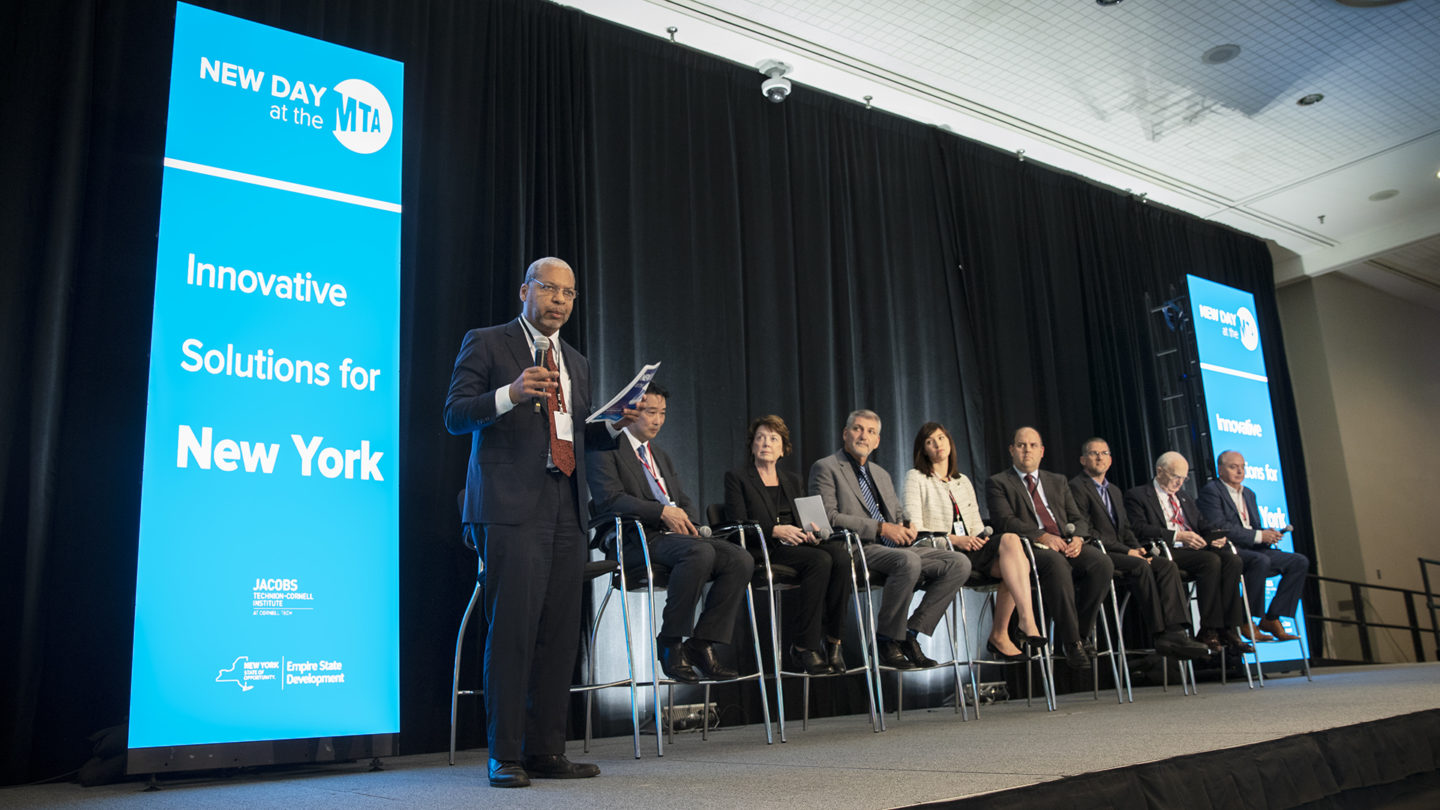
“How can we make a seamless connection, a pipeline, that starts with innovation that occurs largely in either research universities or laboratories elsewhere, and move that into product development and ultimately implementation?” Collins said. “We want to use the technology of today, but we also want to create the technology of tomorrow.”
In January, Collins and Thomas O’Rourke, the Thomas R. Briggs Professor in Engineering in civil and environmental engineering, joined a team of experts in helping Cuomo avert the planned 15-month shutdown of the L train. Along with engineering professors at Columbia – including Mary Boyce, dean of the Fu Foundation School of Engineering and Applied Science – the team developed a solution that allowed the train’s Canarsie Tunnel, which connects Manhattan to Brooklyn, to remain operational during its much-needed repairs.
The successful collaboration can serve as a model for transit innovation, speakers at the conference said.
“By partnering together,” Morrisett said, “the people in this room today – the senior government officials, the academic thought leaders, the groundbreaking business executives, the science and technology experts – can lead us into this new era, showing New York how to do more by thinking creatively.”
Media Highlights
Tech Policy Press
Content Moderation, Encryption, and the LawRELATED STORIES
Jacobs Technion-Cornell Institute at Cornell Tech Launches the Urban Tech Hub
Categories

New interdisciplinary hub launches, looking for innovators and entrepreneurs committed to making cities more livable and adaptable through technology
The Jacobs Technion-Cornell Institute at Cornell Tech has launched Urban Tech, a new hub including applied research, startups, and a first-of-its-kind dual master’s degree focused on making cities more livable, adaptable, and connected. The new degree concentration provides students the opportunity to pursue emerging sectors in urban innovation including mobility and transportation, real estate/property tech and construction, logistics and delivery, energy and other utilities, intelligent buildings and infrastructure, civic and urban community technology, and other areas of technology transformation in urban settings. Applications for the two-year master’s program are now open for the inaugural class entering in Fall 2020.
“Urban Tech exemplifies the core mission of our campus, equipping students to create solutions to complex, pressing, and real-world challenges through interdisciplinary research and experimentation,” said Greg Morrisett, the Jack and Rilla Neafsey Dean and Vice Provost of Cornell Tech. “As our students and faculty experience every day in the heart of New York City, urban life is a melting pot of crucial 21st century issues such as adaptability, transportation, and safety. With access to a world-class faculty and expert industry insight, I’m confident that our Urban Tech program will develop leaders, technologies, and products that will have a positive impact on urban life.”
“The Urban Tech hub is a tremendous addition to the Jacobs Technion-Cornell Institute, joining our other hubs with immersive degree concentrations in media and health,” said Ron Brachman, Director of the Jacobs Technion-Cornell Institute. “With complex systems operating within larger systems, cities naturally demand interdisciplinary study—this perfectly aligns with Jacobs’ strength of gathering the brightest minds in a diverse array of disciplines and industries. Jacobs students and postdocs have already created many successful products and companies, and I know Urban Tech will yield similar results. And we’re particularly excited to have an emerging hub that will expand our scope to new fields through key academic units at Cornell and the Technion.”
The new concentration will allow students to use machine learning, data science, human-computer interaction, and product design to address the multifaceted challenges of a city while gaining real-time insight from leaders, planners, and entrepreneurs from New York City and around the world. The Urban Tech hub was established in part thanks to the Julis Rabinowitz Family, who provided support for the necessary research and scoping to ensure the hub was meeting industry needs.
Work in the Urban Tech realm is already underway at Cornell Tech. This Fall, 17 teams of graduate students are working on Urban Tech projects in the Product Studio course, where students across Cornell Tech’s seven masters programs tackle real-life challenges posed by businesses and organizations. In partnership with ARUP, the MTA, the New York City Mayor’s Office, the City of Holyoke, and many more, students are developing new technologies in response to questions such as these: “how might cities reduce gas consumption and greenhouse gas emissions as we move towards a renewable future?”; “how might we improve access to transportation for people with special needs?”; and “how might we enhance safety for domestic violence survivors in their homes and communities?”
The Jacobs Institute’s Runway Startup Postdoc program, which works with recent PhD graduates to turn deep research into startups, has already spun out four urban tech companies, including Maalka, a data management platform to ensure buildings are meeting their ambitious adaptability goals, and OnSiteIQ, which provides 360-degree visual monitoring of construction sites developed by experts in machine learning and computer vision.
For more information about Urban Tech, visit cornelltech.io/urbantech.
About Cornell Tech
Cornell Tech is a campus that brings together faculty, practitioners, and students to research and build solutions for the opportunities and challenges we face in a digital society. The campus’ degree programs and research initiatives provide responsive approaches to the rapid emergence of technologies and their societal impact. Cornell Tech offers seven doctoral programs and seven master’s programs, including three dual-degree programs with the Technion-Israel Institute of Technology through the Jacobs Cornell-Technion Institute. Cornell Tech’s world-class faculty, graduate students, researchers, and postdoctoral entrepreneurs are focused on building better tuned, highly valuable and more accessible technology for commercial and community use. Key to Cornell Tech is its commitment to growing the tech sector within New York City. Cornell Tech students and postdocs have founded more than 70+ startups in New York City, creating more than 370 new jobs and attracting more than $75 million in investments. The campus also has a dedicated K-12 initiative to bring tech education into local schools, and the WiTNY program, a partnership with City University of New York that is increasing the number of young New York City women who pursue degrees and careers in tech.
Jacobs Technion-Cornell Institute
The Jacobs Institute is the academic partnership between Cornell University and the Technion-Israel Institute of Technology on the Cornell Tech campus. The Jacobs Institute fosters radical experimentation at the intersection of research, education, and entrepreneurship. Its mission is to transform key industries through technological innovation, deep-tech startups, and uniquely skilled talent.
The Jacobs Institute offers three master’s programs in Connective Media, Health Tech, and Urban Tech. The programs equip students to take on complex, real-world challenges through interdisciplinary, domain-focused work, and students receive dual degrees from the Technion and Cornell. Recent PhD graduates work through the Jacobs Runway Startup Postdoctoral Program to apply their knowledge as they lead teams and build companies in industries critical to the 21st century.
Media Highlights
Tech Policy Press
Content Moderation, Encryption, and the LawRELATED STORIES

(Almost) Everyone Likes a Helpful Trash Robot
Cornell Tech and Weill Cornell Medicine Awarded Grant for Research on Technology and Home Health Aides
Categories
Cornell Tech and Weill Cornell Medicine have been awarded a Robert Wood Johnson Foundation (RWJF) grant that will fund interdisciplinary research on the role of technology among home health aides caring for adults with heart failure.
The two-year $358,636 grant, is part of an RWJF initiative exploring how technology’s impact on infrastructure could help or hinder efforts to improve health equity in the United States.
“We’re thrilled to receive this grant from RWJF,” said co-principal investigator Dr. Madeline Sterling, an assistant professor of medicine at Weill Cornell Medicine and a member of the Cornell Center for Health Equity, whose research focuses on social determinants of health in cardiovascular disease and home healthcare delivery for patients with heart failure. “Home health aides often serve as the eyes and ears for patients in the home, but few studies and interventions have focused on them. They do a great deal for these patients (weighing them, preparing low salt meals, reminding them to take medications), but the majority have not received training on the disease and often have trouble reaching other members of the healthcare team by phone when they try to report clinical changes in the field.”
The project will consist of three parts. First, Dr. Sterling and co-principal investigator Dr. Nicola Dell, an assistant professor in the Jacobs Technion-Cornell Institute at Cornell Tech, will analyze the existing relationship between technology, home health aides and home healthcare delivery for patients with heart failure using a multi-stakeholder qualitative study. Second, they will conduct a landscape analysis of prior efforts to integrate technology into home health aides’ workflows. Third, they will convene an expert panel that will meet regularly throughout the grant period to explore ways in which technology could improve training and equity among the home health aide workforce. The project will be carried out in collaboration with the 1199SEIU – Home Care Industry Education Fund of the 1199 Service Employees International Union (SEIU) United Healthcare Workers East — the largest healthcare union in the nation.
“We hope that we will emerge from this project with a clear sense of how to design new technology that could address some of the challenges that the home health aide workforce faces while caring for adults with this complex and highly prevalent disease,” said Dr. Dell, who is also a member of the Cornell Center for Health Equity. Dr. Dell’s work focuses on designing, building, and evaluating novel computing systems that improve the lives of underserved populations in the United States and around the world.
“New technologies have the potential to improve patient care in the home and better integrate home health aides into the clinical care team,” said Nancy Barrand, senior adviser for program development at RWJF, the nation’s largest philanthropy dedicated solely to health.
Media Highlights
Tech Policy Press
Content Moderation, Encryption, and the LawRELATED STORIES







